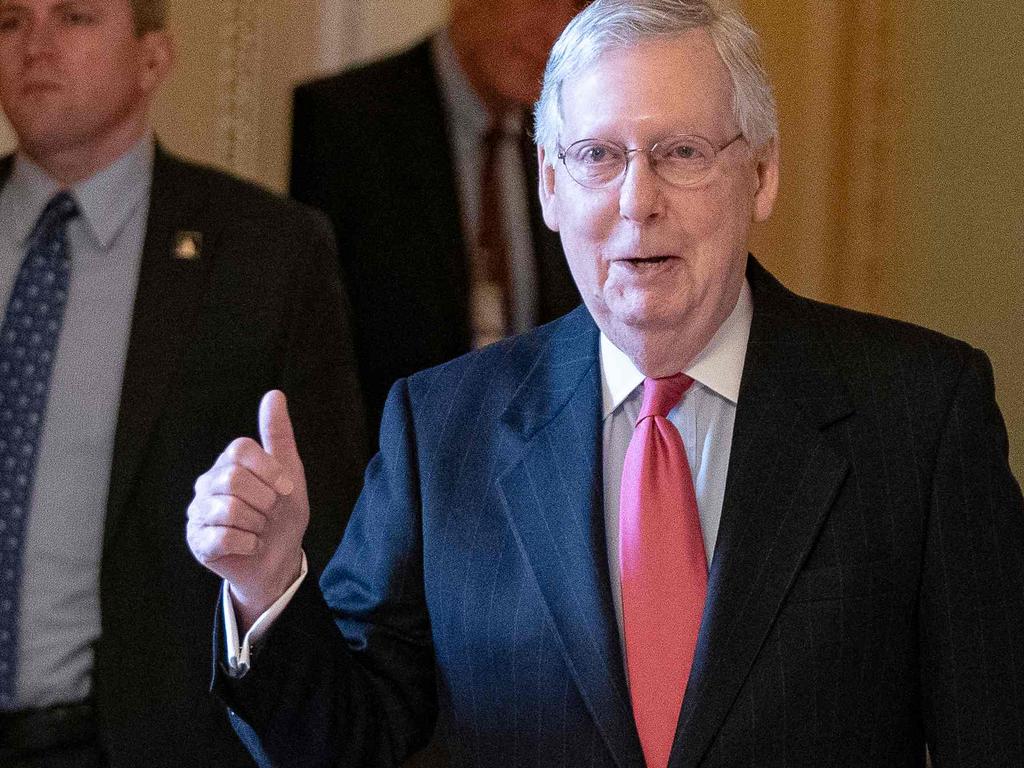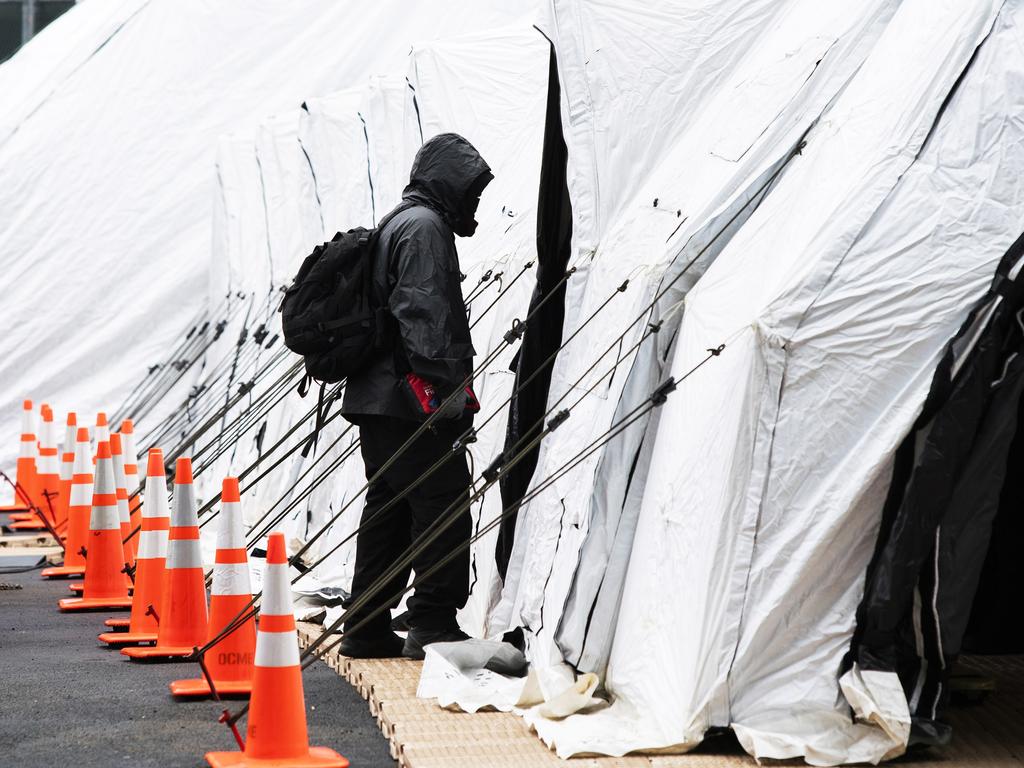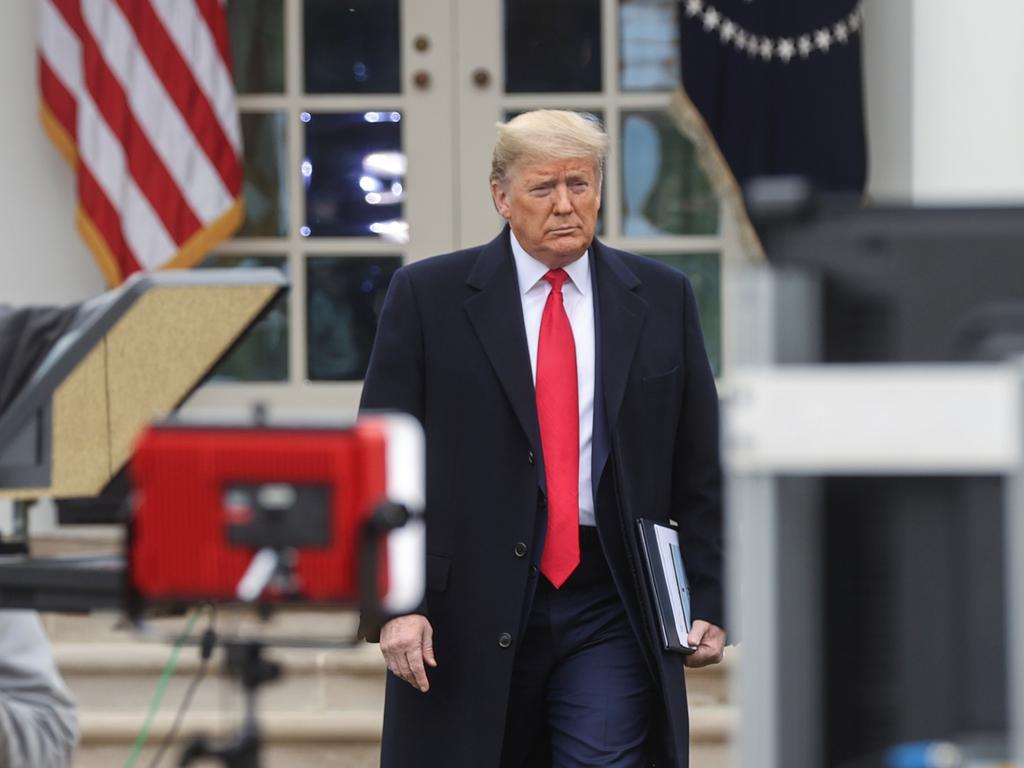
The president had given his political opponents so much early fodder with his ill-considered and dismissive responses to the virus in the initial stages of its spread last month and early this month. Plus the economy was tanking.
Even now, as infection rates and the death toll starts to soar across the US, Trump’s performance is as uneven as the weather — strong on one day and all over the place the next day.
But as the coronavirus crisis worsens, Americans are not criticising Trump’s handling of it in the numbers that Democrats expected.
It is clear that there are more complex factors at work here, including the traditional rallying around a national leader in a time of crisis.
At a time of massive job losses, Trump’s call to reopen the US economy as quickly as possible may also resonate more loudly among the silent majority of voters than do fears of the virus.
Approval rating rises
A Gallup poll released this week showed 60 per cent of Americans approve of his handling of the crisis and 38 per cent disapprove while his approval rating also rose to 49 per cent from 44 per cent earlier this month.
This may not last given that the death toll in the US expected to soar in the weeks ahead. But it does show that the political calculations about how pandemic will shape the US election are far from clear.
A national crisis can often help a president’s popularity.
Franklin D Roosevelt’s approval ratings soared during World War Two, as did those of George W Bush after the 9/11 terror attacks of 2001. Barack Obama’s popularity even enjoyed a short spike after the raid that killed Osama bin Laden in 2011.
In Trump’s case, the polls suggest be has escaped unscathed from his earlier misstatements on the spread and seriousness of the coronavirus. But now that the stakes have grown so quickly, with the rapid spread of COVID-19 and the virtual shutdown of the economy, voters may not be so forgiving of Trump if he mishandles the pointy end of this pandemic.
Trump has tried to foster his self-described image as a ‘wartime president’ by appearing each day at the press conference of his coronavirus task force.
The press conferences, which track the extent of the pandemic and the administration’s response, have been ratings blockbusters, averaging 8.5 million views which, as one report put it, is roughly the viewership of the season finale of ‘The Bachelor.’

This keeps Trump in the national spotlight and seeks to portray the message that he is aware of the gravity of the issue and is leading from the front.
Biden struggles for attraction
By contrast, Trump’s expected Democrat opponent Joe Biden, is struggling for national visibility. The virus threat has confined the 77-year-old former Vice President to him home in Wilmington Delaware where he relies on TV interviews to get out his message that Trump has mismanaged the crisis from the start.
Biden’s campaign team believe Biden’s reputation as a stable, reliable and experienced political veteran makes him an attractive candidate in this time of global turbulence.
Biden’s campaign team have released a montage of video clips showing Trump early claims that the virus would disappear and was no threat to Americans. Biden has also attacked Trump’s comments this week about wanted to relax social distancing guidelines and reopen the economy by Easter.
But so far, Biden’s message has received little prominence amid the wall-to-wall coverage of the virus.
It remains too early to judge the political fallout from the pandemic, but Democrats are learning that it is harder to score points against a sitting president in a national crisis than they initially believed.
Cameron Stewart is also US Contributor for Sky News Australia







As the spread of coronavirus escalated sharply across the United States two weeks ago, many Democrats believed the pandemic would all but kill Donald Trump’s chances of re-election.